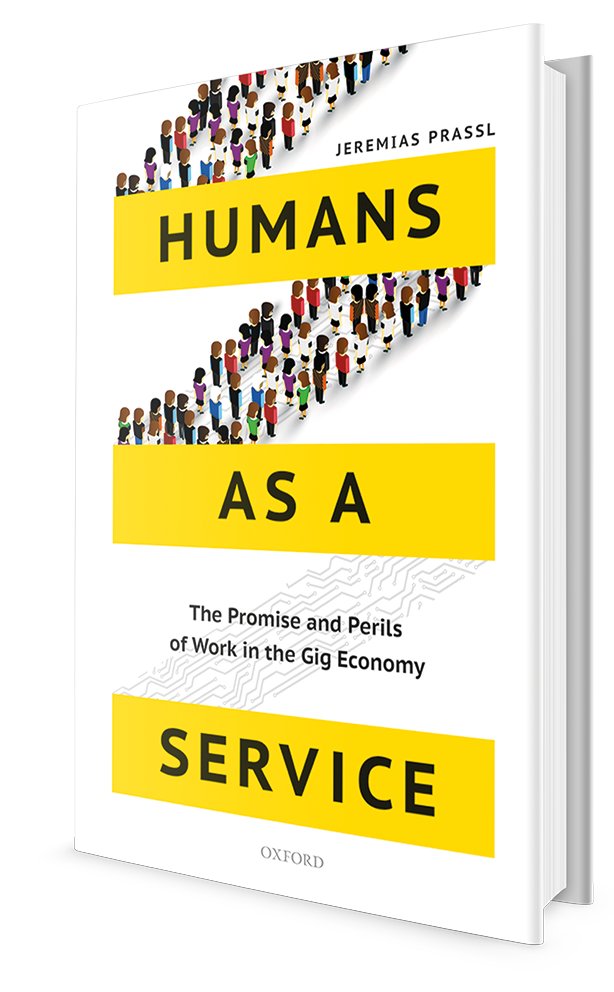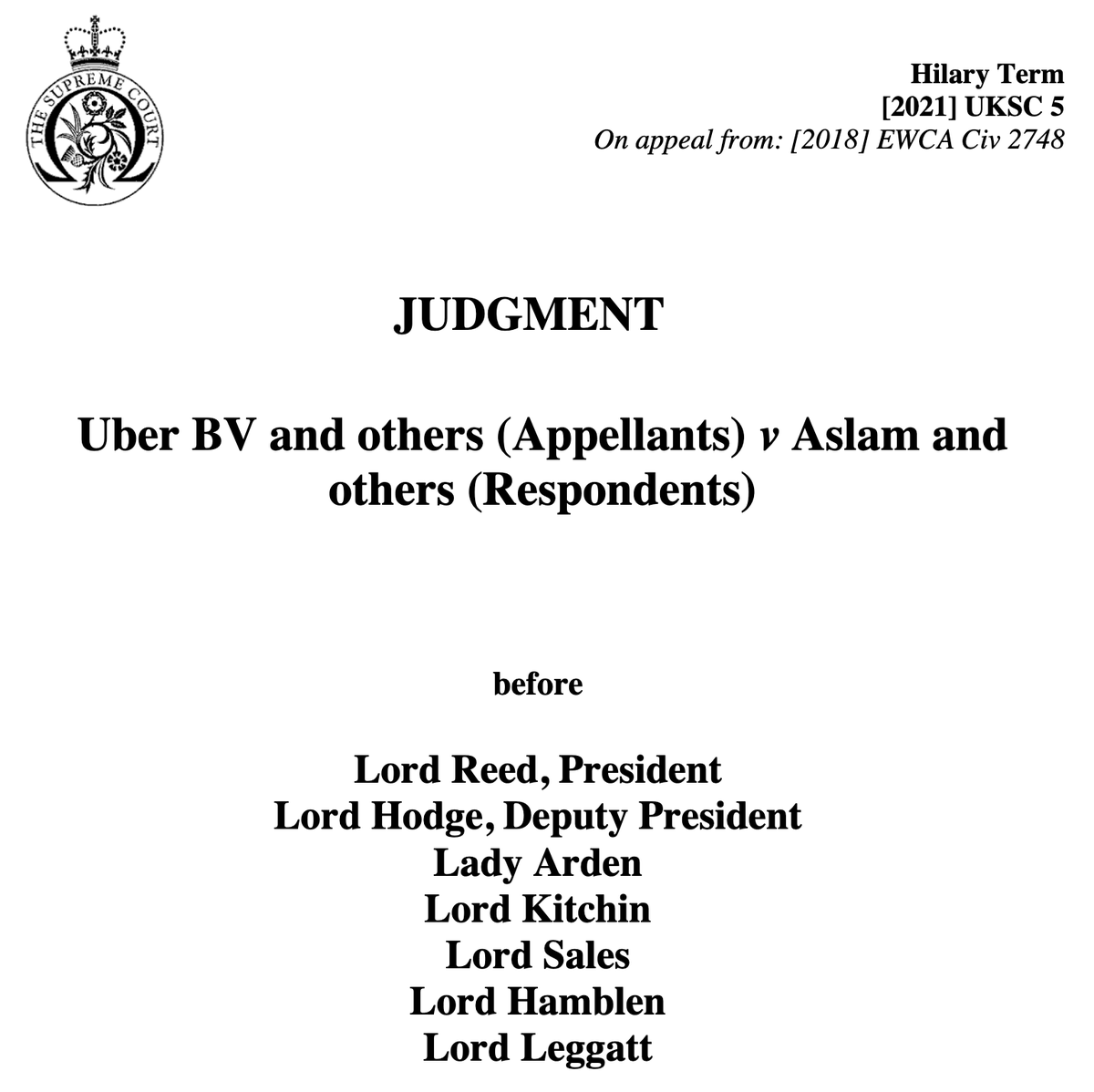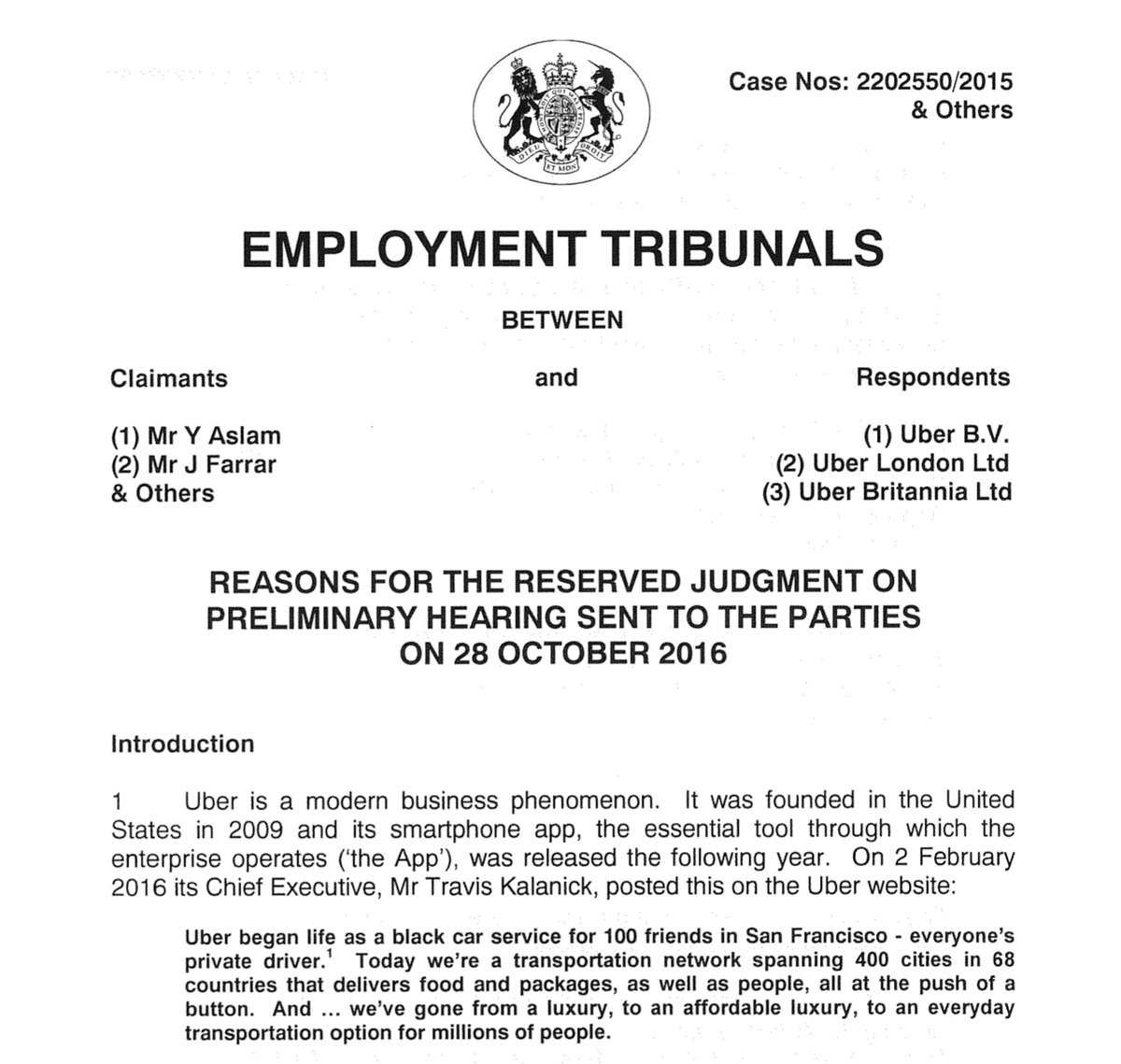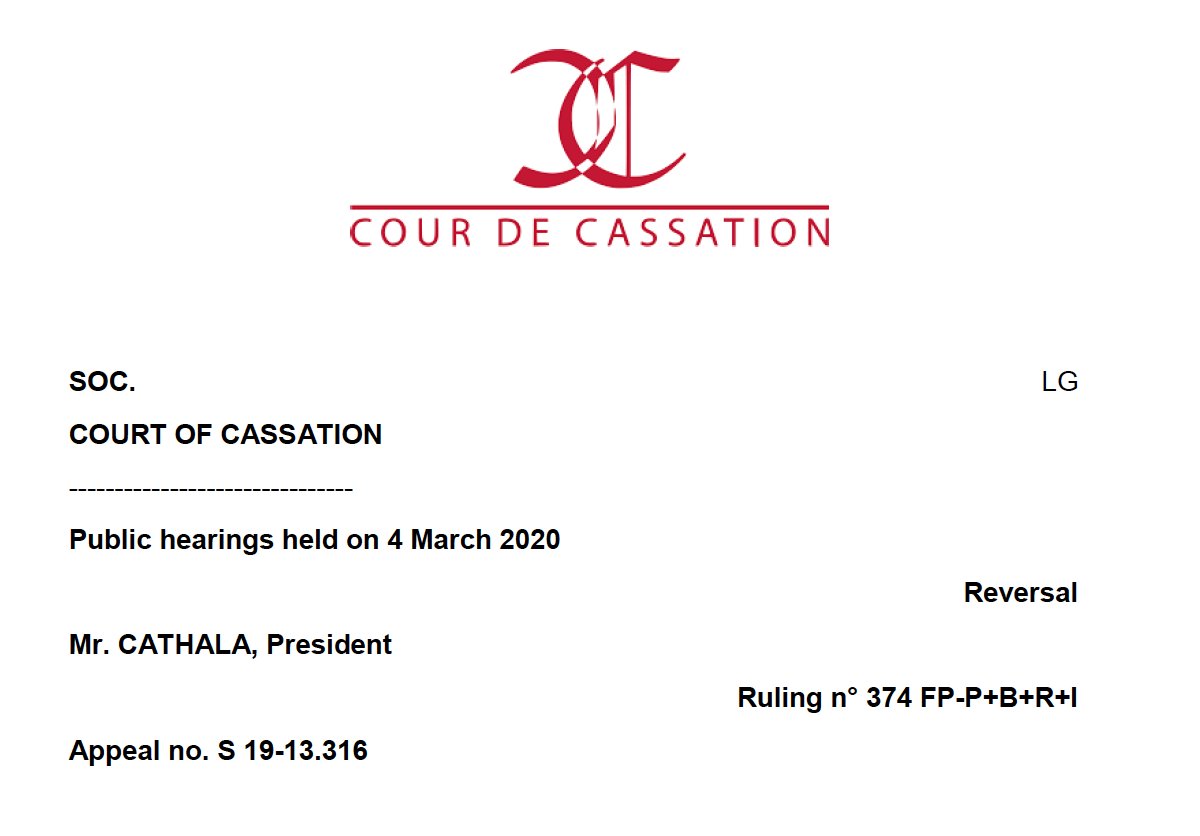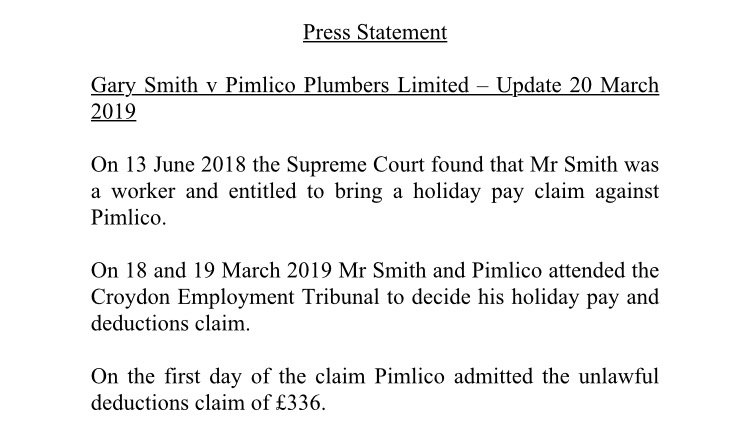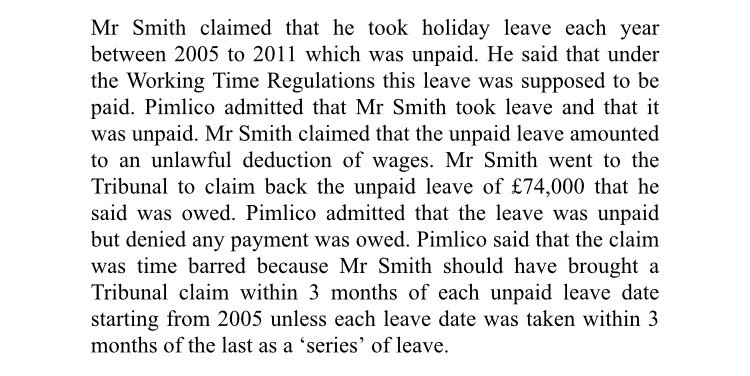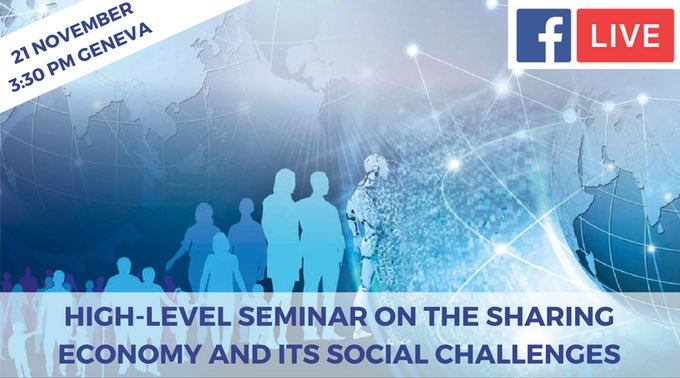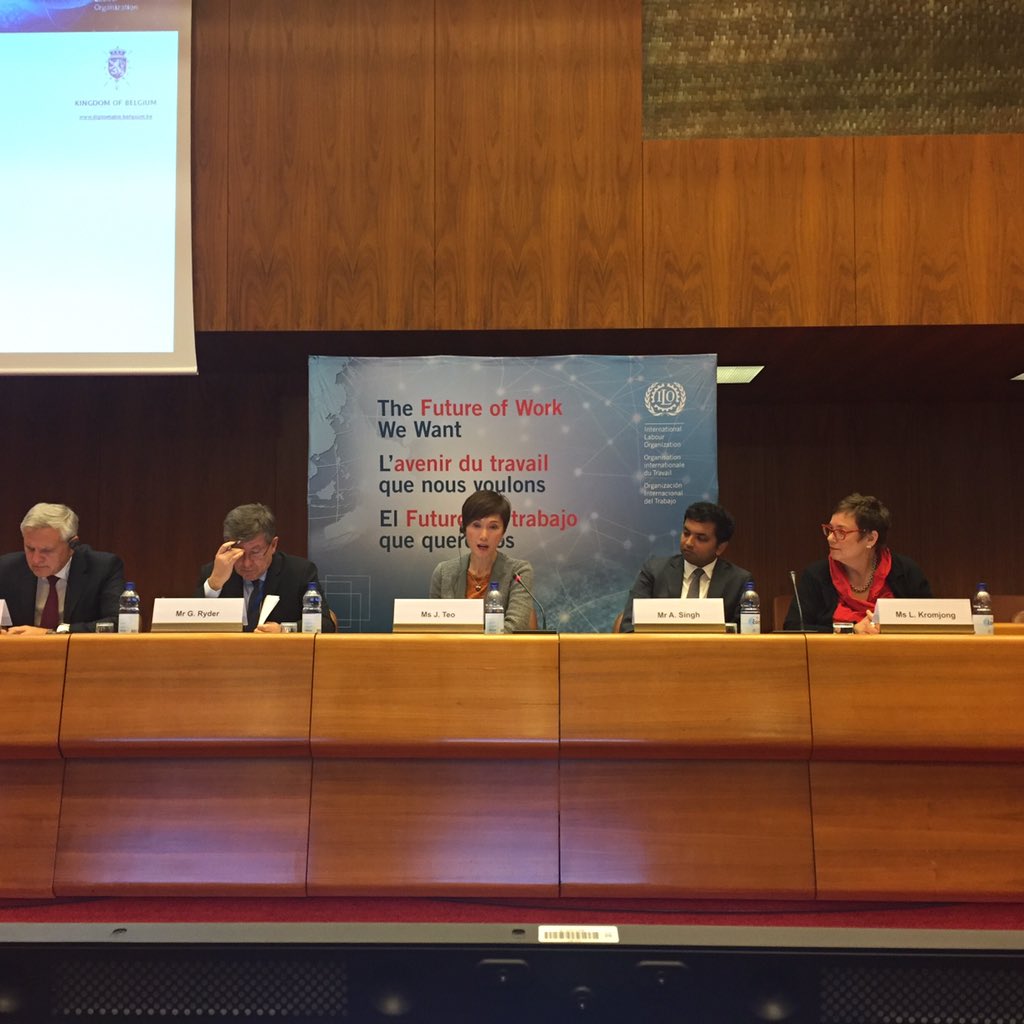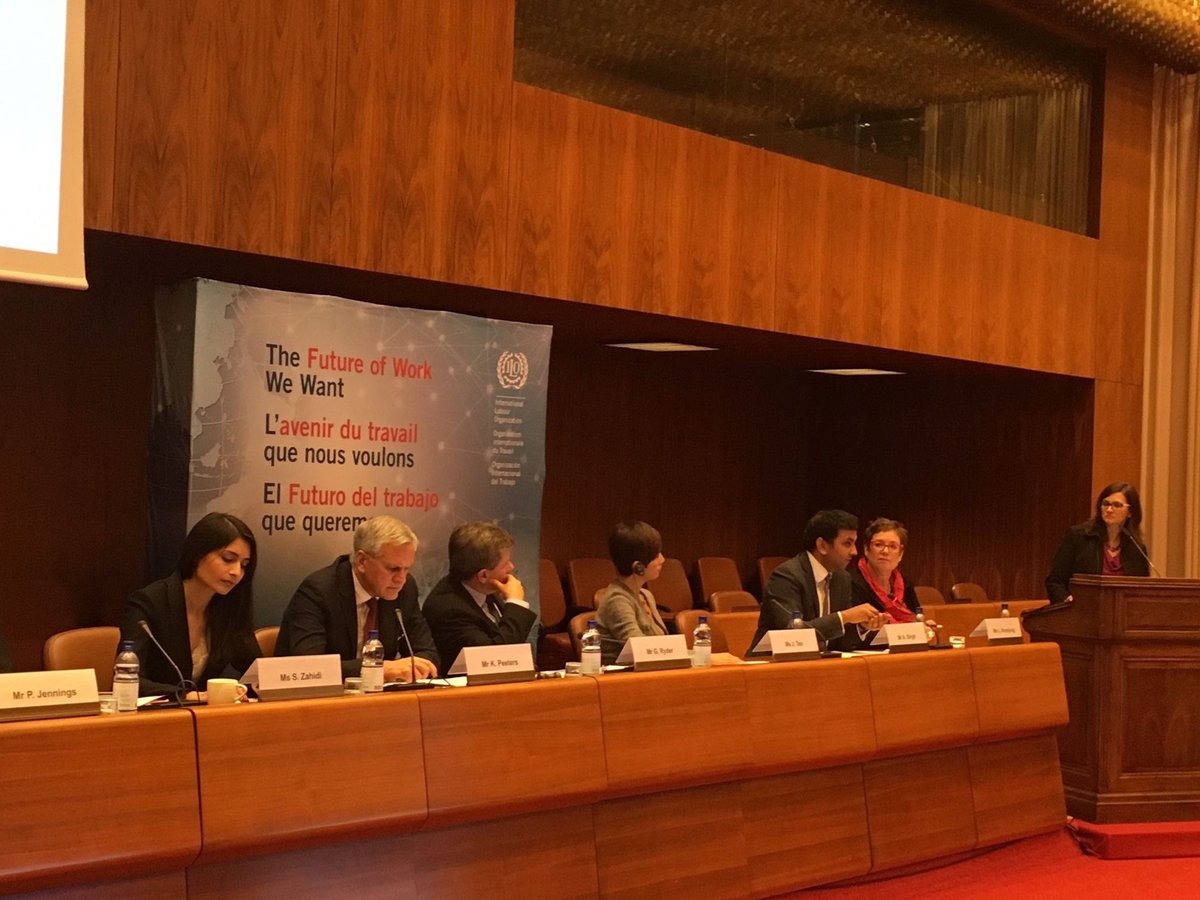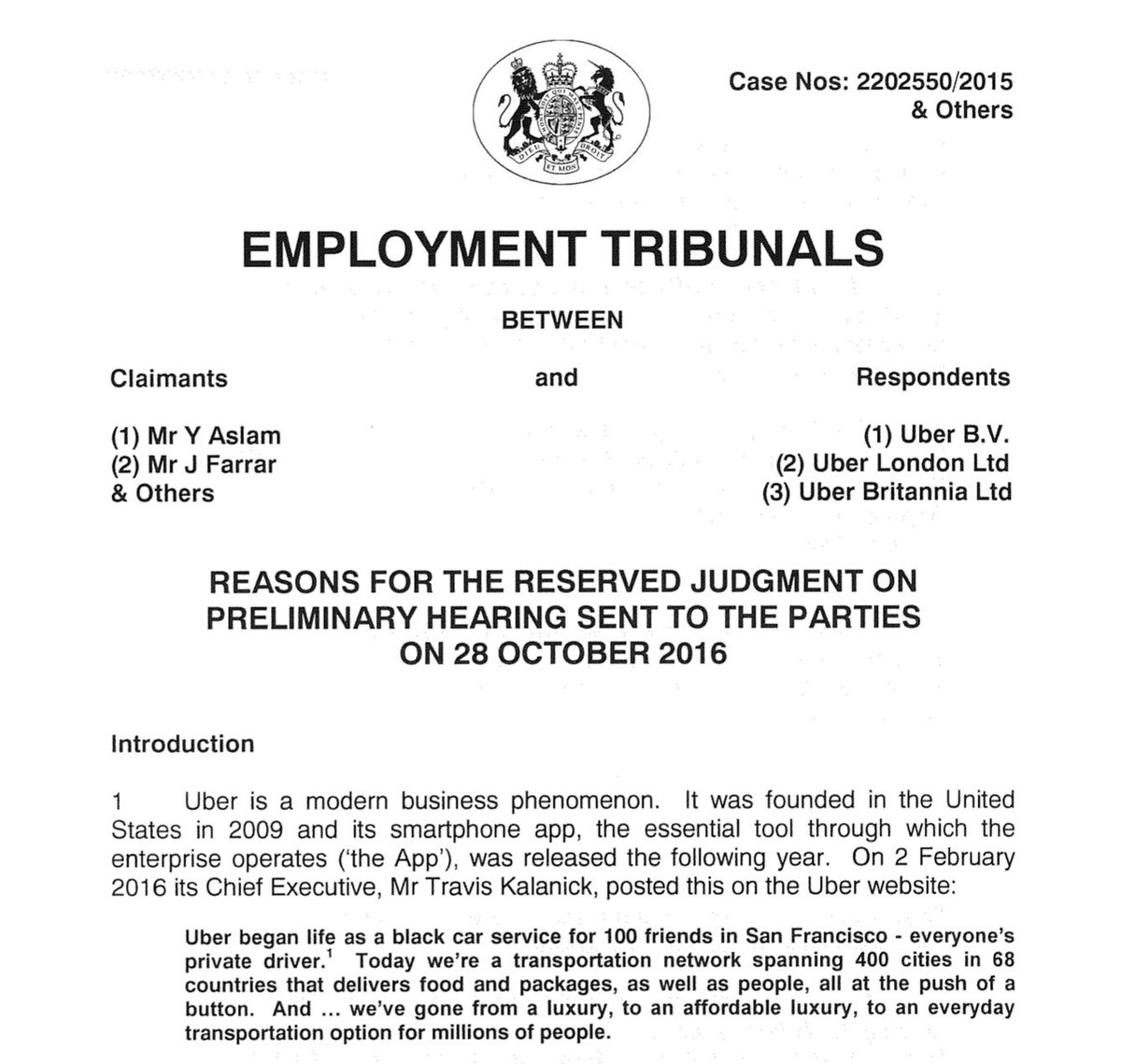
💥BREAKING: #Uber drivers *ARE* workers, rules UK #SupremeCourt, rejecting @Uber 's final appeal. Potentially huge implications for #ukemplaw, and the #gigeconomy business model - full thread with first analysis coming up. 
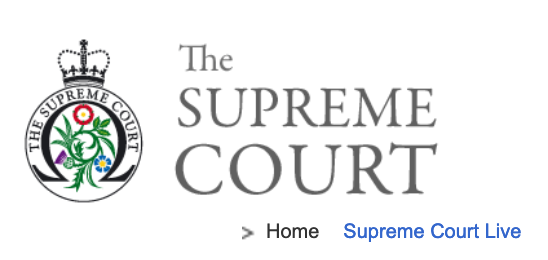
Lord Leggat sets out unanimous judgment of the Court, upholding the ET's findings, emphasising 5 elements: 1/ @Uber sets fare. 2/ contract terms imposed by Uber.
3/ Uber constrains worker choice once logged on, e.g. by monitoring trip request acceptance. 4/ Uber exercises significant control over how drivers deliver services, e.g. rating system
5/ Uber restricts communications between drivers & passengers, takes active steps to prevent drivers from developing rel'p with passengers beyond each ride
Overall, tight control means drivers have little way of being entrepreneurs. Only way to earn more is to work longer hours. Therefore ET right to say that drivers qualify for worker status.
And, HUGELY IMPORTANT, UKSC also upholds ET findings on working time - not limited to passenger rides, but whenever logged into the app.
WOW - first reaction is that this is a huge deal. Can't wait to read the judgment in depth, but for now: UKSC joins a growing number of Supreme Courts across Europe (incl France, Spain) in looking through the myths of entrepreneurship and innovation
And here is @Uber 's response - precisely what I expected. 2 points: constant unilateral changes are, if anything, further evidence of tight control; and whilst voluntary benefits & consultations are nice, they are irrelevant when it comes to *complying with the law* 
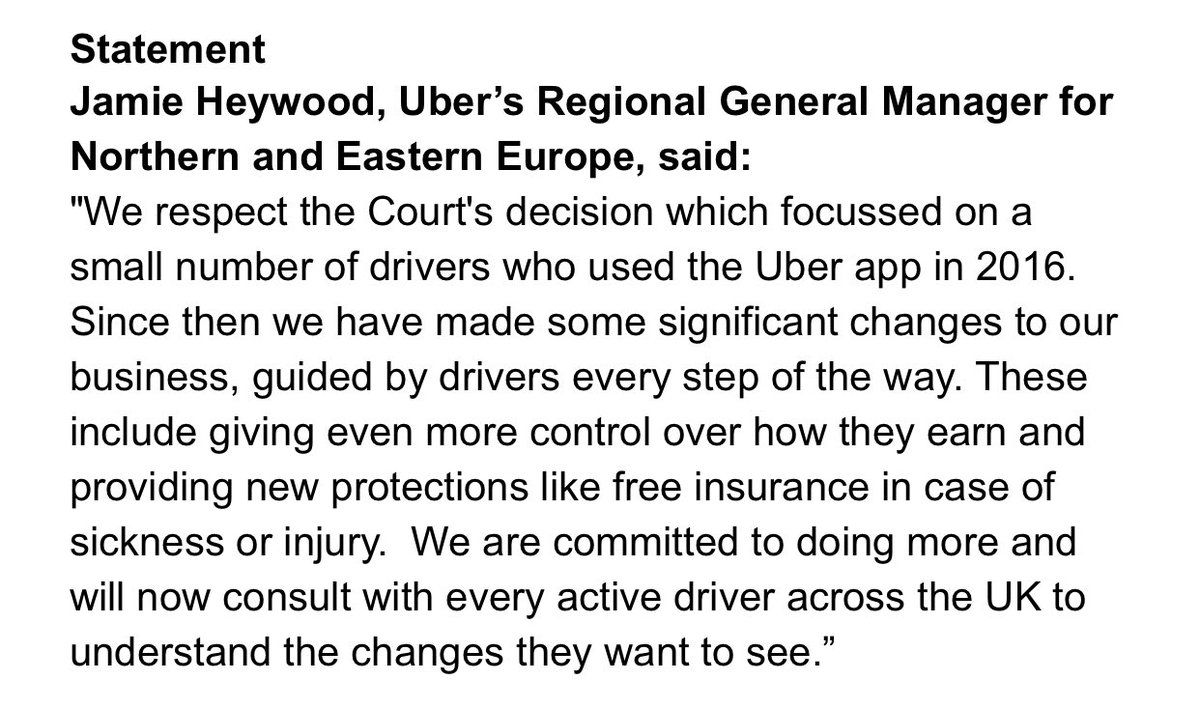
As Lord Leggatt says - the law will not ‘accord Uber power to determine for itself whether or not the legislation designed to protect workers will apply to its drivers.’ [77] 
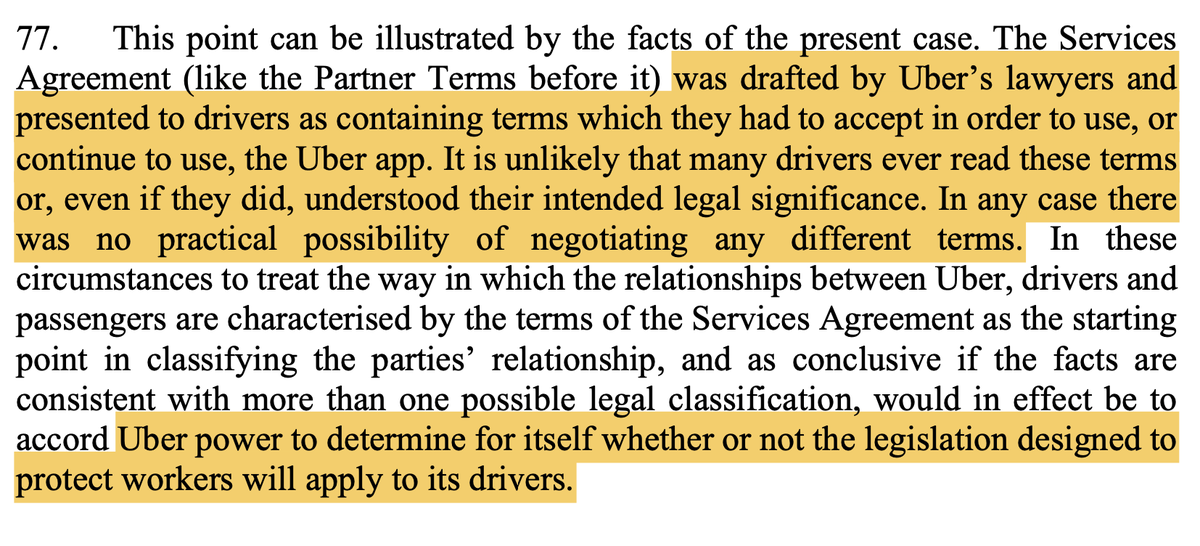
• • •
Missing some Tweet in this thread? You can try to
force a refresh
